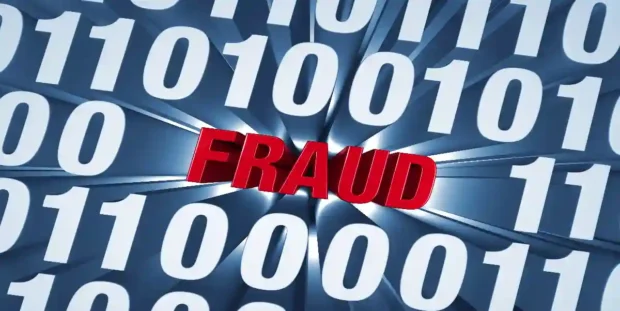Introduction to the DoubleVerify Class Action Lawsuit
If you suffered substantial losses and wish to serve as lead plaintiff of the DoubleVerify class action lawsuit, or just have general questions about you rights as a shareholder, please contact attorney Timothy L. Miles of the Law Offices of Timothy L. Miles, at no cost, by calling 855/846-6529 or via e-mail at [email protected]. Lead plaintiff motions for the DoubleVerify lawsuit must be filed with the court no later than July 21, 2025.
1. What Are the Allegations in the DoubleVerify Class Action Lawsuit?
DoubleVerify provides media effectiveness platforms.
- TheDoubleVerify lawsuit alleges that defendants throughout the Class Period made false and/or misleading statements and/or failed to disclose that:
- (DoubleVerify’s customers were shifting their ad spending from open exchanges to closed platforms, where DoubleVerify’s technological capabilities were limited and competed directly with native tools provided by platforms like Meta Platforms and Amazon;
- DoubleVerify’s ability to monetize on its Activation Services was limited because the development of its technology for closed platforms was significantly more expensive and time-consuming than disclosed to investors;
- DoubleVerify’s Activation Services in connection with certain closed platforms would take several years to monetize; (iv) DoubleVerify’s competitors were better positioned to incorporate AI into their offerings on closed platforms, which impaired DoubleVerify’s ability to compete effectively and adversely impacted DoubleVerify’s profits;
- DoubleVerify systematically overbilled its customers for ad impressions served to declared bots operating out of known data center server farms; and
- DoubleVerify’s risk disclosures were materially false and misleading because they characterized adverse facts that had already materialized as mere possibilities.

The DoubleVerify class action lawsuit further alleges that on February 28, 2024, DoubleVerify issued lower revenue growth expectations for the first quarter of 2024 due to “a slow start by brand advertisers and a slow ramp by recently signed” customers. On this news, the price of DoubleVerify stock fell more than 21%, according to the DoubleVerify lawsuit.
Then, on May 7, 2024, DoubleVerify cut its full-year 2024 revenue outlook due to customers that were pulling back on their ad spending. On this news, the price of DoubleVerify stock fell nearly 39%, according to the complaint.
The DoubleVerify lawsuit further alleges that on February 27, 2025, DoubleVerify reported lower-than-expected fourth quarter 2024 sales and earnings due in part to reduced customer spending, and defendants further disclosed that the shift of ad dollars from open exchanges to closed platforms was negatively impacting DoubleVerify.
On this news, the price of DoubleVerify stock fell more than 36%, according to the DoubleVerify lawsuit.
2 . What Are the Eligibility Criteria for Lead Plaintiff Appointment in the Doubleverify Lawsuit?
To be eligible for appointment as the lead plaintiff in the DoubleVerify class action lawsuit, an investor must meet the following criteria:
- Securities Acquisition: The investor must have purchased or acquired DoubleVerify Holdings, Inc. (NYSE: DV) common stock between November 10, 2023 and February 27, 2025,
- Financial Losses: The investor must have suffered financial losses as a direct result of the alleged securities fraud perpetrated by Doubleverify and its executives.
- Typicality and Adequacy: The investor’s legal claims must be typical of those asserted on behalf of the class, and they must demonstrate their ability to adequately represent the interests of the entire class through experience, resources, and the absence of conflicts of interest.
It is crucial to note that both domestic and international investors who meet these criteria are eligible to seek appointment as the lead plaintiff in the class action lawsuit, as courts have consistently recognized the rights of non-U.S. investors in securities class actions.
3. What Is the The Class Period in the Doubleverify Lawsuit?
In the context of a securities fraud class action lawsuit, such as the DoubleVerify lawsuit, the term “class period” refers to the specific timeframe during which the alleged fraudulent activities occurred and affected investors. This period is crucial because it delineates the bounds within which investors must have acquired or sold their securities to be eligible to participate in the DoubleVerify class action lawsuit. Essentially, the class period establishes the temporal scope of the alleged misconduct and its impact on the market.

For instance, in a case like the DoubleVerify lawsuit, the class period would be defined by the dates when false or misleading statements were purportedly made by the company or its executives, which subsequently led to artificial inflation or deflation of the company’s stock price.
Investors who bought or sold MicroStrategy shares within this timeframe and suffered financial losses due to these misrepresentations can then seek to join the class action to claim their damages.
The determination of the class period is typically based on an in-depth analysis of the company’s disclosures, market reactions, and other relevant factors that indicate when the deceptive practices began and ended.
Courts play a pivotal role in approving this period as it ensures that only those affected by the alleged fraud during that specific timeframe are included in the DoubleVerify class action lawsuit. The class period thus serves as a critical element in framing the litigation, guiding both legal strategies and settlement negotiations.
4. What Does Opting-out of the DoubleVerify Class Action Lawsuit Mean?
Opting out of a class action lawsuit involves an individual choosing not to participate as a member of the class. In the context of the DoubleVerify class action lawsuit, this means that a shareholder or other affected party would decide to pursue their own separate legal action rather than be part of the collective lawsuit.
Opting out can be a strategic decision based on various factors such as the desire for greater control over the litigation process, potential for a larger individual settlement, or differing personal circumstances that may not align with the class’s claims.

When an individual opts out of a class action, they retain the right to file their own lawsuit against the defendant, in this case, Vestis. This decision must be made within a specified timeframe and in accordance with the procedures outlined by the court overseeing the class action.
It is essential for individuals considering this option to thoroughly evaluate their legal standing and consult with an attorney who can provide guidance tailored to their specific situation.
The DoubleVerify class action lawsuit, like many class actions, seeks to address grievances shared by a large group of plaintiffs who have been similarly affected by the company’s actions. While participating in a class action can streamline the litigation process and reduce individual legal costs, opting out allows for a more customized approach to seeking justice and compensation.
This decision should be made carefully, weighing the potential benefits and drawbacks in light of one’s unique circumstances and goals. If you have substantial losses, you may want to consider opting-out, but remember if you do, you will not be able to participate in any settlement in the DoubleVerify lawsuit.
5. How the Lead Plaintiff Will be Determined in the DoubleVerify Class Action Lawsuit?
In the DoubleVerify class action lawsuit, determining the lead plaintiff is a crucial step that will significantly influence the direction and outcome of the case. The lead plaintiff is typically the investor or group of investors with the largest financial interest in the case and who is deemed most capable of representing the interests of all class members.
The selection process begins with the filing of the lawsuit, with a notice issued by the firm filing the case notifying other class members of the date when motions for lead plaintiff must be filed. Interested parties must then submit a motion to the court demonstrating their suitability for the role of lead plaintiff.
The court will evaluate several factors to determine the most appropriate lead plaintiff in the DoubleVerify lawsuit. First and foremost, the financial losses incurred by the potential lead plaintiffs will be scrutinized, as those with substantial losses are presumed to have a stronger incentive to vigorously prosecute the case. Additionally, the court will consider the experience and qualifications of the applicants, including their ability to manage complex litigation and their willingness to oversee legal counsel effectively.
Moreover, the court seeks to avoid conflicts of interest that could undermine the integrity of the representation. Therefore, it will also assess whether any potential lead plaintiff has any interests that might conflict with those of other class members. Once appointed, the lead plaintiff will have significant responsibilities, including making strategic decisions about how to conduct the litigation and negotiating any potential settlements on behalf of all class members.
The role is pivotal in ensuring that the collective legal action is pursued efficiently and that any recovery is maximized for those affected by DoubleVerify’s alleged misconduct.
6. What Is the Settlement Process in the DoubleVerify Class Action Lawsuit?
The settlement process in a securities class action, such as the DoubleVerify class action lawsuit, is a comprehensive procedure designed to resolve disputes between plaintiffs and defendants efficiently. Once the lawsuit is filed, both parties engage in extensive discovery, gathering evidence to support their respective claims and defenses. This phase can include document production, depositions, and expert testimony.

After discovery, the parties may enter settlement negotiations to avoid a lengthy and costly trial. During these negotiations, they discuss potential terms for resolving the case, which often involves monetary compensation for the plaintiffs and possibly changes to corporate governance practices.
If an agreement is reached, it must be submitted to the court for preliminary approval. The court will review the settlement terms to ensure they are fair and reasonable for all class members in the DoubleVerify class action lawsuit.
Following preliminary approval, a notice is sent to all class members in the DoubleVerify lawsuit informing them of the proposed settlement and their rights. Class members have the opportunity to object or opt out of the settlement if they are dissatisfied with the terms.
Once the court hears any objections and considers all input from class members, it will hold a final approval hearing. If the court grants final approval, the settlement becomes binding, and funds are distributed to eligible class members according to the agreed-upon plan.
The DoubleVerify lawsuit exemplifies this process, highlighting the importance of thorough legal representation and judicial oversight in ensuring fair outcomes for affected investors. This methodical approach helps maintain investor confidence in the securities market by providing a structured means of addressing corporate misconduct and compensating aggrieved shareholders.
Contact Timothy L. Miles Today About an Doubleverify Class Action Lawsuit
If you suffered losses in Doubleverify stock, call us today for a free case evaluation about a DoubleVerify class action lawsuit. 855-846-6529 or [email protected] (24/7/365).
Timothy L. Miles, Esq.
Law Offices of Timothy L. Miles
Tapestry at Brentwood Town Center
300 Centerview Dr. #247
Mailbox #1091
Brentwood,TN 37027
Phone: (855) Tim-MLaw (855-846-6529)
Email: [email protected]
Website: www.classactionlawyertn.com


